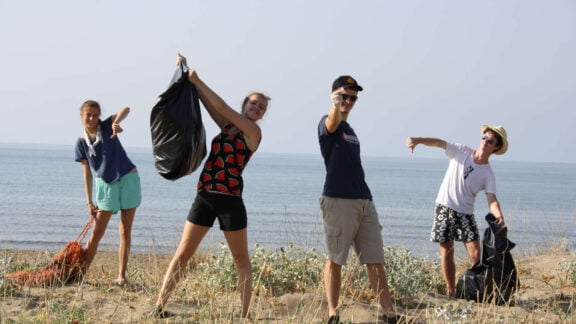As unbelievable as it may sound, Greek kitchen staples such as sideritis (mountain tea), dittany and even oregano are becoming endangered in the mountains of Crete, raising fears among the authorities, in Hania especially, who have been studying and monitoring the phenomenon for the past few years.
“We did not want to publish our concerns earlier because we wanted to be sure, but now we can say it: The way that the endemic plants of the region are collected and the overall environment represent serious threats,” said Polymnia Sklavaki, an official with the local authority’s forestry department.
According to scientists, the problem has become especially acute over the past couple of years due to the fact that herbs are being uprooted for sale and are not cultivated, while there have also been instances of illegal collection in areas that are protected under the European Union’s Natura network program.
“It is absolutely essential that we have better management of the natural habitats of these herbs, which make a priceless contribution to the area’s biodiversity. People who want to collect the herbs should be issued with licenses and it should only be for household consumption,” said Sklavaki.
Costas Economakis, an agricultural scientist and researcher at the National Foundation for Agricultural Research (ETHIAGE), estimates that Cretan mountain tea (Sideritis syriaca) quantities have dropped by 30 percent in the space of one generation (30 years). “This is an endemic plant and if it disappears from Crete, it will disappear completely,” he said.
The causes of the depletion, he argued, are not just restricted to the uncontrolled collection of the plants, but are more complex.
“Over-collection, overgrazing and changes to the ways that land is used all lead to the impoverishment of the genetic material that exists in the mountains of Crete and this has an effect on the environment, as well as on the region’s economy,” said Economakis.
A number of different factors go into the special qualities that can be found in the endemic herbs that grow on Crete and these are dependent on the preservation of the ecosystem, which is under threat from overdevelopment and overgrazing.
“In the past, the sheep would be brought down to the lowlands for part of the year, allowing the mountains to blossom in spring. Now they are never brought down because of the tourist resorts on the coast, which means that not only are they eating young plants, but they are trampling them as well and preventing them from growing,” said Economakis.
“Meanwhile, the sheep are also being fed industrial feed. If this continues, there will be no difference between buying meat from Aspropyrgos or from White Mountains of Crete. The special qualities that make Cretan products stand out will be lost,” said the scientist.
Sklavaki has called for stricter supervision of protected habitats, saying that local communities need to be educated about the problem and shown that the island’s genetic capital is at risk and that its further destruction would have a devastating effect on the local economy.
“These herbs should also be cultivated on farms and according to strict regulations,” Sklavaki said. “Demand for oregano in Hania is greater than supply and this is something that needs to be addressed, not with imports or the depletion of wild oregano, but with cultivation.”
Local authorities and environmental groups have also called for the creation of a seed bank that will contain samples of endemic plants, from the Prefecture of Hania especially, in order to preserve all the rare species of herbs and possibly use them for cultivation in the future as well to produce more seeds.
Scientists also note that other than their culinary attributes, many of these plants have excellent curative properties as well and must be preserved for medicinal purposes if for no other reason.
“The DNA of these plants needs to be stored and catalogued so that their use can also be conducted in a rational and organized manner. Bulgaria, for example, is cultivating a strain of Cretan mountain tea for a German pharmaceutical company. We should have protected the species with a designation of origin identifier so that it cannot be grown anywhere else,” said Economakis, who believes that the cultivation of rare endemic herbs could serve as a powerful engine for the Cretan economy.
Source: ekathimerini








